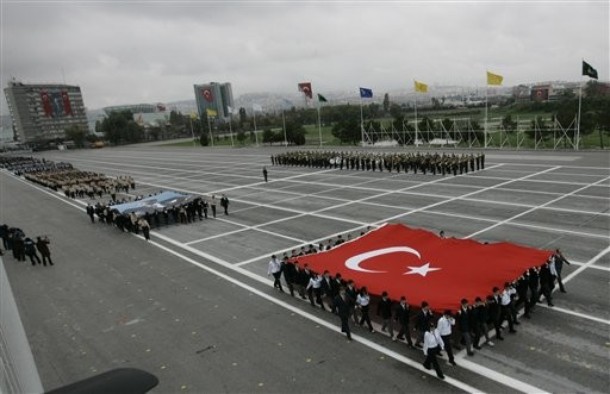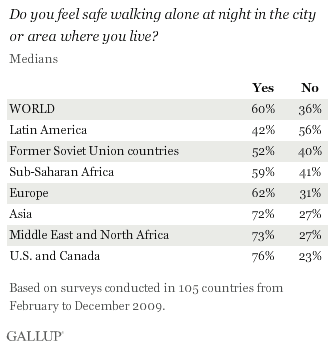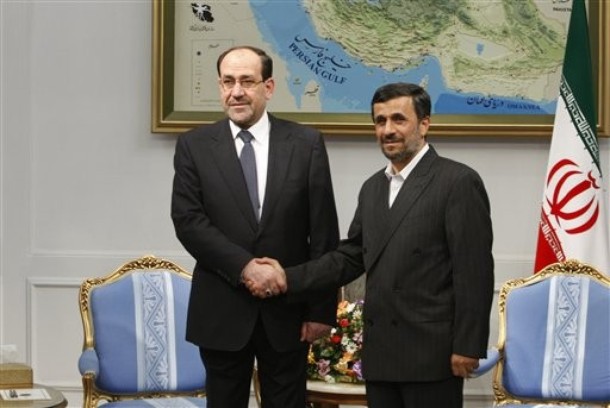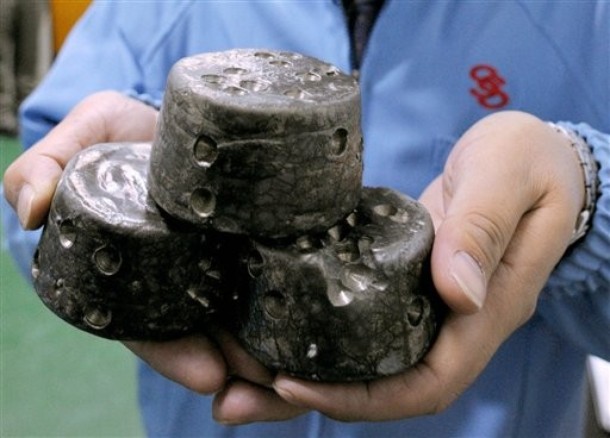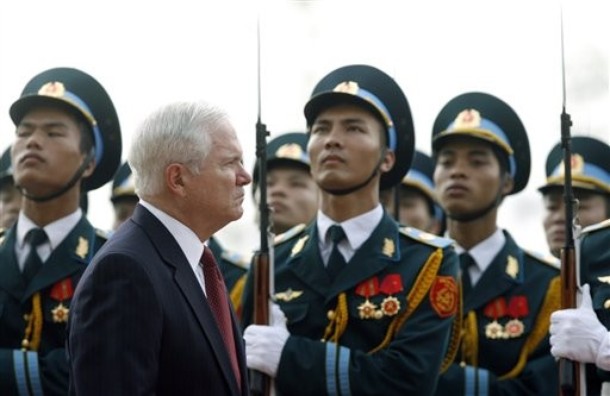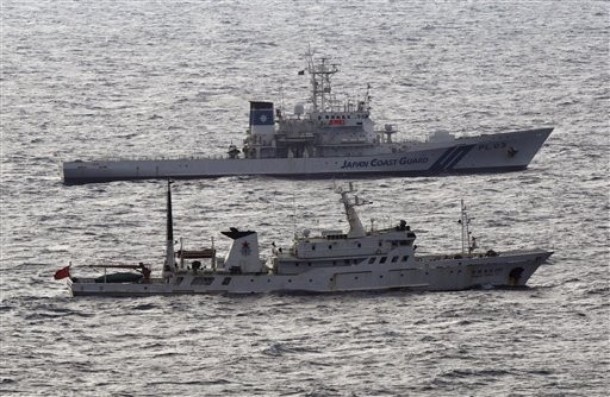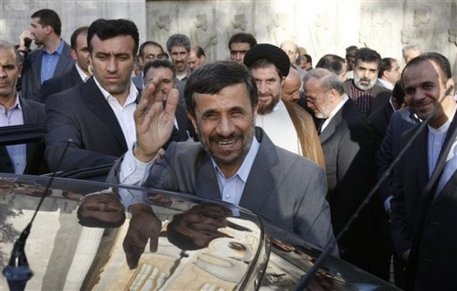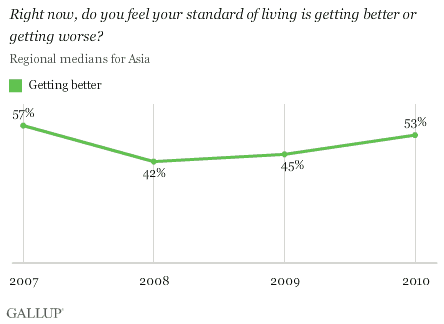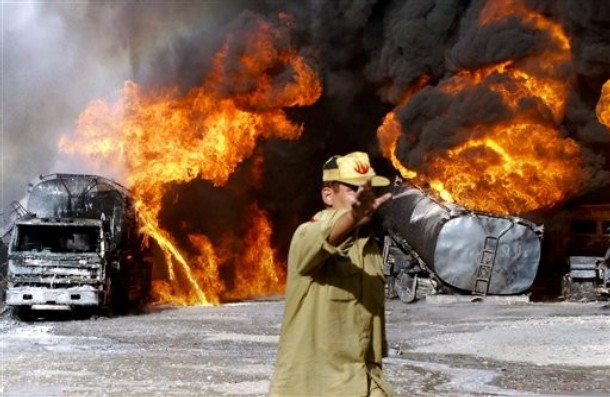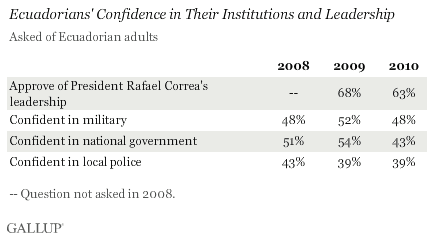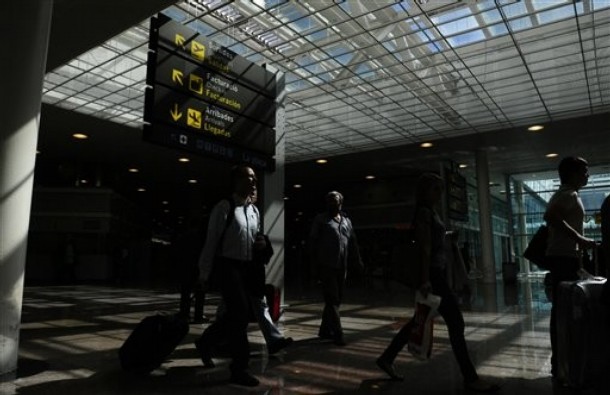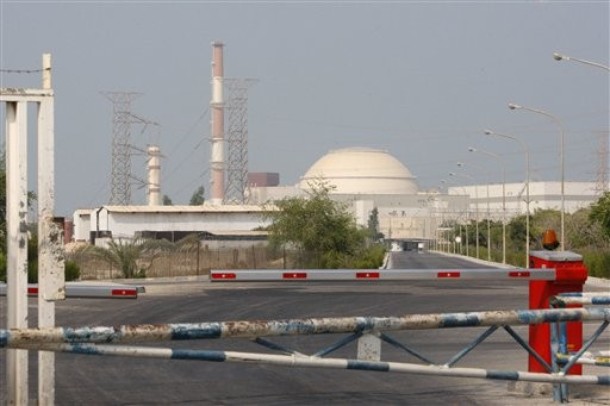It should come as no surprise that Kori Schake would dissent from Robert Pape's policy recommendations on Off-Shore Balancing. Professor Pape has already posted a response, as has Chad Levinson , a contributor to Cutting the Fuse. Pape is also fortunate enough to have two confederates in Greg Scoblete and Daniel Larison.
There are really a few arguments going on here. The first is whether or not the locations that the United States currently has troops stationed serve American interests. The second is whether or not we can accomplish our objectives with a less intrusive military policy. A third discussion, which is more common within blogs and groups that focus more on domestic politics, is what the data actually means. I feel, however, that a change in the way we think about this data (which I had no hand in collecting) would be very helpful in resolving the third question, and will allow us to move on to a more useful discussion of potential policy, even if we do not yet agree on the first two questions.
First, there's the finding of extremely strong correlation between occupation and suicide attacks. This is not a causal relationship. Professor Pape elaborates on secondary variables that explain when suicide attacks might not occur during an occupation, but I believe that the correlation is the key point. It is stretching the finding to extrapolate statements about terrorist motivation, culpability or rationality of actors.
I see the Logic of Suicide Terrorism (LST) as imposing costs on powerful actors and constraints on weaker ones. Powerful actors are usually the targets of suicide terrorism, either directly or indirectly, and suicide attacks are a very effective tool of the weak.
Suicide Terrorism imposes a cost on powerful actors, because even when they are acting against overwhelmingly weaker actors, those weaker actors can almost assuredly extract blood and treasure when there is a military occupation. This means that while powerful actors remain powerful, and have a relatively free hand when dealing with weak actors, there is a relatively high cost associated with occupation.
On the other hand, Suicide Terrorism imposes a fairly strong constraint on weak groups, in that they are only able to muster individuals for suicide attacks when there is an ongoing occupation. It is possible then that altruistic suicide is actually fairly difficult to get someone to do. It's also possible that something like an occupation makes people feel like opportunity costs related to suicide are dramatically lower, increasing willingness for suicide attacks. It is further possible that most potential suicide attackers must be tightly controlled in a way possible only in areas where terrorist groups are located, and therefore generally near occupied areas. For any, all or potentially none of these reasons, suicide attacks are only possible (in any great number) when there is an ongoing occupation.
Notice that this point of view, and indeed the entire line of argument, does not necessarily absolve groups like al-Qaeda of malign intentions. It is possible that Osama bin Laden, and many of his ilk, really do hate us for who we are, and would willingly send thousands of pedestrian suicide bombers into the streets of the United States. But he cannot. So even if the Muslim world does 'hate us for who we are' they apparently don't hate us enough to kill themselves over it - until we are in their neighborhood, that is.
This then raises the question of how to approach potential policy remedies, and we fortunately have a pretty good analog in Japan during the second world war. During WW II, Japan had two tools that were very effective in killing Americans and slowing the Allies' advance. One, the Kamikaze, had few constraints, since there were many airfields and even aircraft carriers from which to launch their attacks.
The second tool, however, was cave fighting. By definition, cave fighting can obviously only occur where there are caves, which in the Pacific means islands. Of course, the U.S. had to take some islands, like Iwo Jima, and take them it did, but at an extraordinary price. However, if the objective was not necessary, then the better option was to simply bypass the island, which the Allies did with great frequency.
Armed with the knowledge of LST, we should treat occupations and objectives in much the same way. It is likely that from time to time we will need to occupy territory, and that occupation always carries the risk of suicide attacks. However, if the interest is great enough, then we must bear the cost. However, we can also rest assured that while issues other than occupation may motivate other forms of terrorism, we can be relatively reassured that such terrorism will take more manageable forms. In other words, while the terrorists might continue to attack us, they will be more easily contained, deterred and defended against because they will not have set out to kill themselves in the first place.
Notice that while it is possible to extrapolate total non-intervention from this policy, I argue that it is not necessary, nor wise to commit to no use of ground forces. Unfortunately, Off-Shore Balancing remains fairly under-theorized, and therefore people are able to paint onto it whatever they see fit. In a strategy of Off-Shore Balancing neither aerial bombardment nor total absence of land forces would be prudent. However, we must accurately, and carefully identify our national interests, and pursue strategies with appropriate forces that secure those interests at sustainable costs.
Originally posted at CPOST.

